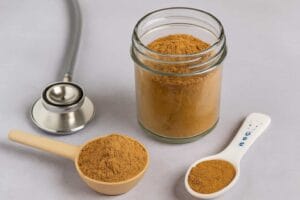Have you ever wondered why some ancient remedies keep resurfacing in modern wellness conversations? One such marvel is chaga mushroom tea for liver health. This dark, earthy brew isn’t just a trendy superfood; it’s been cherished for centuries for its potential healing properties. As someone who’s always been fascinated by natural ways to support the body, I found myself drawn to how chaga might gently nurture one of the most hardworking organs we have: the liver.
The Liver: Our Silent Workhorse and Why It Needs Care
Before diving into the wonders of chaga mushroom tea for liver support, it helps to appreciate what the liver does. This incredible organ is a biochemical factory, processing everything from nutrients to toxins. It filters blood, produces vital proteins, stores energy, and even helps regulate hormones. Yet, despite its resilience, the liver can become overwhelmed by poor diet, stress, environmental toxins, and alcohol.
When the liver struggles, the whole body feels it. Fatigue, digestive issues, skin problems, and even mood swings can be subtle signs that your liver needs a little extra love. That’s where natural allies like chaga come into play.
What Is Chaga Mushroom Tea?
Chaga (Inonotus obliquus) is a fungus that grows primarily on birch trees in cold climates. It looks like a rough, burnt lump on the tree bark, but inside, it’s packed with antioxidants and bioactive compounds. Brewing chaga mushroom tea releases these beneficial elements, creating a deeply nourishing, slightly bitter drink that has been used in traditional medicine for centuries.
People often compare chaga to other medicinal mushrooms like reishi, which you might have heard about for supporting bone health and immune balance. If you’re curious, you can check out more about reishi mushroom for supporting bone health to see how these fungi complement each other in wellness routines.
How Chaga Mushroom Tea Supports Liver Health
So, what makes chaga mushroom tea for liver so special? It all comes down to its unique composition:
- Antioxidants: Chaga is rich in superoxide dismutase (SOD) and polyphenols, which help neutralize free radicals that can damage liver cells.
- Anti-inflammatory properties: Chronic inflammation is a common culprit behind liver disease, and chaga’s compounds may help reduce this inflammation.
- Immune modulation: A balanced immune system supports liver repair and detoxification processes.
- Detoxification support: Some studies suggest chaga may enhance the liver’s ability to process toxins more efficiently.
Imagine your liver as a busy factory. Antioxidants and anti-inflammatory agents are like maintenance crews, cleaning up the workspace and preventing breakdowns. Drinking chaga mushroom tea regularly might just provide that gentle, ongoing support your liver craves.
Scientific Insights: What the Research Says
While traditional use is compelling, science is catching up. Research on chaga mushroom tea for liver health is promising, though still emerging. Animal studies have shown that chaga extracts can reduce liver inflammation and oxidative stress, two key factors in liver damage. For example, a 2018 study found that chaga helped protect liver cells from chemical-induced injury.
Of course, human clinical trials are limited, so it’s wise to approach chaga as a supportive, not curative, option. That said, the existing evidence aligns with what herbalists and wellness enthusiasts have observed for generations.
How to Brew and Enjoy Chaga Mushroom Tea
Making chaga mushroom tea is a ritual in itself. Here’s a simple way to brew this nourishing elixir:
- Break chaga chunks or powder into small pieces.
- Simmer in boiling water for 1 to 2 hours (or use a slow cooker for a longer brew).
- Strain the tea to remove solids.
- Enjoy it plain or with a touch of honey or cinnamon for added warmth.
You might notice the tea has a rich, earthy flavor with a hint of bitterness—perfect for those quiet moments when you want to slow down and savor something wholesome.
Interestingly, you can also combine chaga with other medicinal mushrooms like reishi to create a holistic blend. If you want to explore more about how mushrooms can enhance your respiratory health, you might enjoy this article on reishi mushroom for enhancing respiratory health.
Are There Any Risks or Side Effects?
While chaga mushroom tea is generally considered safe for most people, it’s important to be mindful of a few things:
- Chaga can interact with blood-thinning medications due to its natural anticoagulant properties.
- If you have autoimmune conditions, consult your healthcare provider before adding chaga to your routine.
- High doses might affect blood sugar levels, so diabetics should monitor their response.
As with any supplement, starting slowly and paying attention to how your body reacts is key.
Exploring the world of medicinal mushrooms feels like stepping into a beautiful blend of ancient wisdom and modern science. Whether you’re sipping chaga mushroom tea to support your liver or simply enjoying its rich, earthy flavor, it’s a small ritual that connects us to nature’s healing rhythms. At the end of the day, what truly matters is finding what nourishes you—body, mind, and soul—in the most authentic and gentle way possible.
F.A.Q
Can chaga mushroom tea help detoxify the liver?
Absolutely. Chaga mushroom tea contains antioxidants and compounds that support the liver’s natural detoxification processes, helping to neutralize harmful substances and reduce oxidative stress.
How often should I drink chaga mushroom tea for liver benefits?
Many people find that drinking a cup daily or several times a week offers gentle support. However, listen to your body and consult with a healthcare professional, especially if you have underlying health conditions.
Is chaga mushroom tea safe for people with liver conditions?
While chaga has potential benefits, if you have a diagnosed liver condition, it’s best to discuss with your doctor before adding chaga mushroom tea to your regimen to ensure it won’t interfere with any treatments.
What’s the difference between chaga mushroom tea and other mushroom teas like reishi?
Both are medicinal mushrooms but offer different benefits. Chaga is particularly known for its antioxidant and anti-inflammatory properties, while reishi is often used for immune modulation and stress relief. You can learn more about reishi mushrooms and their benefits here.
What makes Chaga mushroom a super-fungus with untapped potential
Chaga mushroom (Inonotus obliquus) is recognized as an affordable yet powerful medicinal fungus with a wide range of traditional and modern health applications. According to research published in Frontiers in Pharmacology, Chaga shows potential in supporting therapies for cancer, diabetes, and skin conditions, thanks to its rich composition of bioactive compounds such as steroids and terpenoids. Its antioxidant, anti-inflammatory, and antiviral properties make it a promising natural compound with many unexplored benefits. For a detailed scientific review, read the full study on PubMed Chaga mushroom: a super-fungus with countless facets and untapped potential



